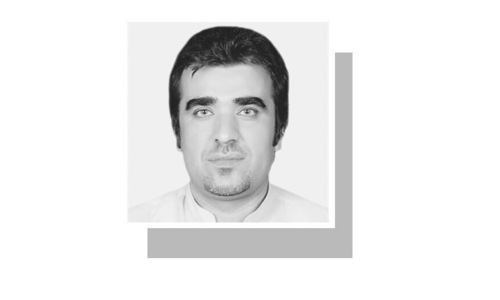
WASHINGTON: The United States and Pakistan should stop pretending they are allies and amicably “divorce,” Pakistan’s former ambassador to Washington said on Wednesday, citing unrealistic expectations in both countries that include US hopes Islamabad will sever its links to extremists.
“If in 65 years, you haven’t been able to find sufficient common ground to live together, and you had three separations and four reaffirmations of marriage, then maybe the better way is to find friendship outside of the marital bond,” Husain Haqqani said, addressing the Center for the National Interest, a Washington think tank.
Haqqani’s recommendation that the United States and Pakistan essentially downgrade their status was based on the premise that it may be the only way to break from what has been a dysfunctional relationship.
A post-alliance future would allow both countries to hold more realistic expectations of each other, cooperating where possible but perhaps without the sense of betrayal, w h ich has become acute in Pakistan.
He cited a survey by the Pew Research Center released in June showing roughly three-in-four Pakistanis consider the United States an enemy, even though the United States pours billions of dollars of aid into the country.
“If this was an election campaign ... you would advise the senator with these kinds of favorability ratings to pull out of the race, instead of spending more money,” said Haqqani, who plans to publish a book entitled “Magnificent Delusions” next year about the US-Pakistan relationship.
His candid remarks represented Haqqani’s first address in Washington since he resigned as Pakistan’s envoy last year after, he says, being framed for drafting a memo that accused the Pakistani army of plotting a coup, allegations he defended himself against before Pakistan’s Supreme Court.
Many of Haqqani’s comments underscored the friction between Pakistan's civilian government and military, which have bedeviled the nuclear-armed South Asian country for almost its entire existence.
Haqqani, who served as an adviser to four Pakistani prime ministers, identified himself among a small minority who support good relations with the United States but “who do not have the ability to influence the course of policy at home.”
He said Pakistan's military needed to be under greater civilian control, adding Pakistan's national interests are defined “by generals, not by civilian leaders.”
But he also doled out criticism of US policymaking, saying it was too often short-sighted, lacking the necessary historic perspective needed to appreciate realistically what Pakistan might do in return for aid and cooperation.
The depths of the strained US-Pakistan relationship have come into full public view since the United States, without telling Pakistan, secretly staged a raid to kill Osama bin Laden last year. Haqqani was ambassador at the time.
He repeatedly said someone in Pakistan knew of bin Laden’s presence, even though he stopped far short of blaming Pakistan’s principal intelligence agency, the Inter Services Intelligence directorate (ISI).
“I still think a full proper investigation on the Pakistani side is needed to find out how Osama bin Laden lived in Pakistan and who supported him, within or outside the government,” he said. “I really do not know (who helped bin Laden). All I am saying is that somebody knew.”
Unreealistic Expectations
He said it was just as unrealistic for Pakistanis to think that the United States would side with Pakistan by launching war on India as it was for the United States to think Pakistan would give up its nuclear weapons or sever ties with extremists.
“Equally unrealistic is that Pakistan ... will give up support for jihadi groups that it deems to be a subconventional force multiplier for regional influence,” Haqqani said.
Describing his vision for a post-alliance future for the United States and Pakistan, Haqqani appeared to downplay US security concerns. He said Pakistan's eight-month shut-off of ground supply lines for Nato forces in Afghanistan showed the United States it could rely on more costly routes to the North.
And when it comes to unpopular US drone strikes against militants, Haqqani believed the United States would press ahead with the campaign even in a post-alliance future.
“I have no realistic expectation of the United States ending the drone campaign and (no realistic expectation of) Pakistan accepting it,” he said.










































Dear visitor, the comments section is undergoing an overhaul and will return soon.